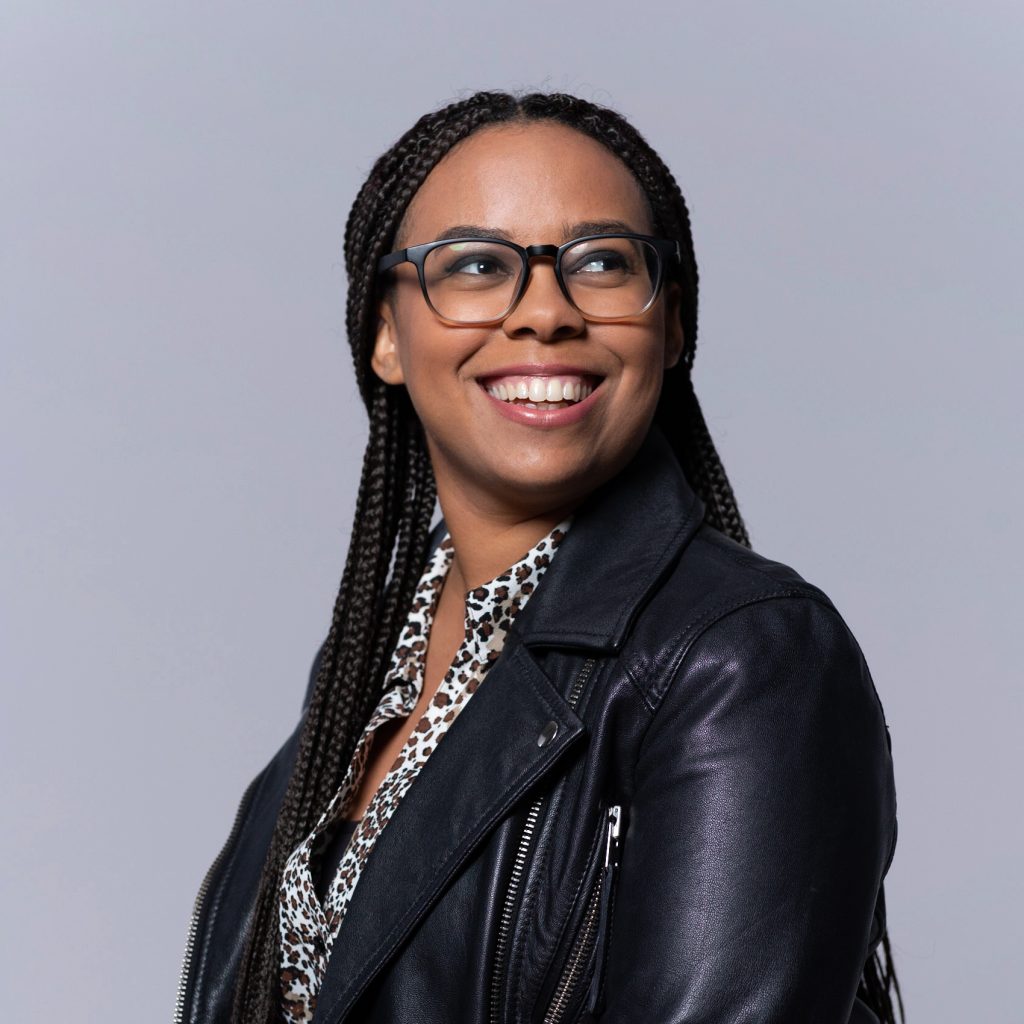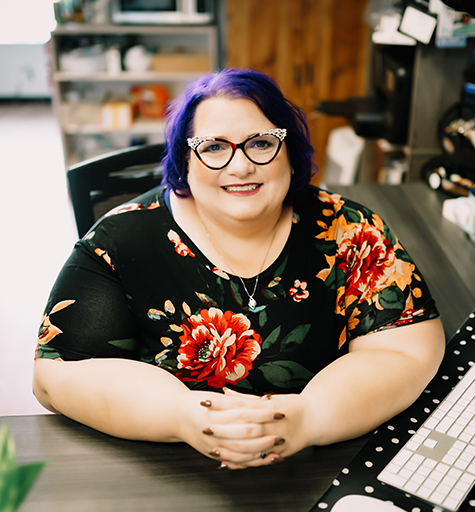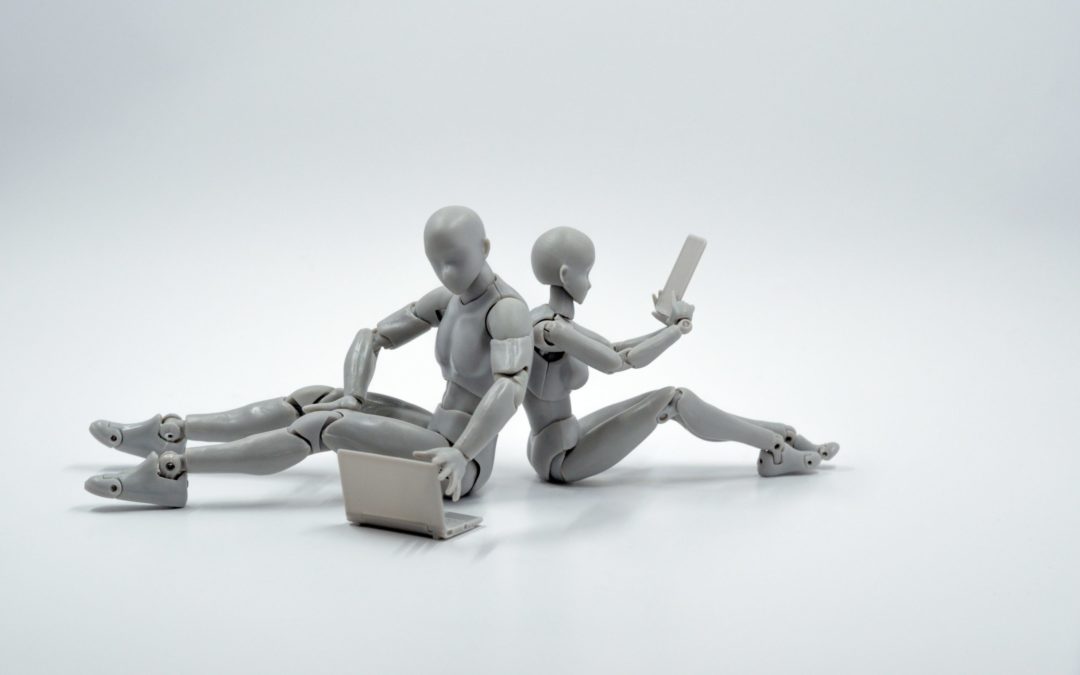Show Notes
In this episode Allie and Michelle discuss AI imagery and writing. Diversity is often a huge concern with this content since rarely are these things coded without biases of some kind.
Reference Links:
Episode Transcript
Allie Nimmons:
Welcome to the Underrepresented in Tech Podcast, hosted by Michelle Frechette and Allie Nimmons. Underrepresented in Tech is a free database built with the goal of helping people find new opportunities in WordPress and tech overall.
Michelle Frechette:
Hi, Allie.
Allie Nimmons:
Hi, Michelle. I like that I just wait for that when I hit record. I don’t start talking. I just look at you and I wait for you to do our standard intro.
Michelle Frechette:
I know. I love that. I gave a talk for the Cadence Amplify event about podcasting and called, “So you want to launch a podcast?” And I was like, “And then find your thing that’s your thing.” I go like, “In Underrepresented in Tech Podcast, I’m always like, hi Allie.” That’s our little thing.
Allie Nimmons:
That’s our little introduction and it’s awesome. And then at the end, you always say, “We don’t know what we’re going to talk about next week, but we’ll figure it out.” Yeah.
Michelle Frechette:
Yep.
Allie Nimmons:
Just so cool. And all that came out organically. We never planned that. Its just stuff that makes us laugh and we just keep doing it.
Michelle Frechette:
Exactly.
Allie Nimmons:
Well, today I want to talk about something that also makes me laugh, but makes me laugh in a facepalm sort of a way.
Michelle Frechette:
A laugh and cringe all at the same time.
Allie Nimmons:
Yeah. A laugh cringe combo. So right now, everybody will not stop talking, I’m getting sick of it, will not stop talking about AI. It is what everyone is talking about. AI images, AI audio, AI video, AI writing, AI everything. I’m honestly sick of it. But the one AI thing that has really stuck with me recently is the conversation around diversity with AI, which our good friend Naisha Green talked about on the Master WP Newsletter a while ago, how she started playing with these AI image makers and how obvious and blatant the racial biases are with these tools to where she wanted to make herself into a fairy or something. And it made her White.
And she’s like, [inaudible 00:02:18] “In all the other pictures that I used, I was Black. And now what?” This is so weird. I even tried one recently. I was messing with Midjourney over the weekend, and I just put in my name. I just put in Allie Nimmons, which if you do a Google search of my name, I have a fairly unique last name. So when you put in a Google search of me, in Google Images, it only comes up with images of me for the first two pages of Google Images. And I am Black, I have darker skin, and it spit out a bunch of images of blonde, blue-eyed White women.
Michelle Frechette:
Oh my God.
Allie Nimmons:
And I was just like-
Michelle Frechette:
‘Cause you can’t be named Allie unless you’re White.
Allie Nimmons:
I don’t understand. And granted, my last name has European origins because my dad is White. But I was just, I thought that these things pull information from what’s already out on the internet. If there are other Allie Nimmons’s out there, I am definitely the most prominent one on the internet. So I was really ticked off about that. I thought that really suck.
Michelle Frechette:
Yeah. For sure.
Allie Nimmons:
So there have been all of these conversations around diversity and biases, particularly around race, around a lot of other things too. But I happen to really notice the race conversations. And the latest one is how companies are starting to use AI generated models to “increase diversity” by creating fake Black people. And it’s like-
Michelle Frechette:
As if you’re not underrepresented enough, we’re going to pretend you don’t even exist to take photos of. We have to make you up.
Allie Nimmons:
It’s crazy to me how… It’s like you must really, really not want to pay Black people if you’re willing to put so much time and energy and effort into creating fake ones. It’s not. And when I put on my empathy hat, I can understand the desire to say, “Okay, well, if we’re going to have a ad campaign where we just use AI models, we want to have diverse ones, we want to have Black ones, so on and so forth.” That I get. But part of what makes having these people… The representation is there and it matters. Part of what matters with this type of representation though, is that there is a real person modeling these things, right?
And you’re taking opportunity away from people. So when we sit here and talk about, “Oh, robots and AI are stealing our jobs”, I never thought about models whose jobs are being stolen. We think about all the types of other roles and positions, more white collar, legitimate jobs. But we don’t think about-
Michelle Frechette:
Writers and marketers.
Allie Nimmons:
I have friends from when I was in theater school who have moved into modeling and other similar industries, and it’s really hard for them. It’s massively competitive. It’s a very mentally unhealthy industry. There’s so much challenge to it. And now all of a sudden it’s like, “Well, you as a person are not what we actually valued. It’s just a body to put in our clothes.” And it’s like-
Michelle Frechette:
Yeah. I mean, it’s tokenizing, tokenism or something. I mean, there’s some level of just absolute weird tokenization going on when you’re not even allowing a real person to be the token. I mean, it’s just so awful.
Allie Nimmons:
Yeah. It’s so bizarre. And I’ve been looking at articles and stuff, and people are really torn. Some people think that this is fantastic, creates a more personal and inclusive shopping experience. And it’s just like, “Do you not realize you are literally dehumanizing your industry?”
Michelle Frechette:
Right, exactly.
Allie Nimmons:
It’s so upsetting to me in a lot of ways. I don’t have a deeper commentary outside of that.
Michelle Frechette:
Yeah. I know.
Allie Nimmons:
It’s just like supplementing these fake bodies, it also reeked me of, particularly with the modeling thing. In Black American history, Black bodies have always just been used as tools. Back from slavery, they were used as tools. Even in post-slavery America, Black women were often experimented on for reproductive research and other medical research. And it’s this thing of when are our bodies going to stop just being seen as tools and when are we going to be seen as real genuine people outside of what it is that you need us to do in this given moment?
And it frustrates me that people are heralding AI as this future. And it’s like, but it relies so much on our thoughts of the past and our biases of the past. And it allows us to continue to rely on those thoughts and biases that are just unhelpful. And this isn’t to say that all AI is like this, or all AI is unhelpful, but this in particular really, really gets underneath my skin. Because also-
Michelle Frechette:
No, I understand [inaudible 00:07:59]-
Allie Nimmons:
When I look at a lot of these images of these Black women, they are light-skinned Black women with predominantly European features. So you are designing your ideal Black women.
And if people out there are listening, I have light skin and predominantly European features, and that is both a blessing and a curse as a person moving through the world. And so it’s like you’re saying that the ads are going to be more diverse, but you’re not actually showing the… I’ve yet to see any of these AI generated models who are plus size, who are disabled. They’re all hyper perfect Barbie dolls, and it’s frigging gross.
We hope you’re learning a lot from the podcast. If you have any questions or need specialized help making your space more diverse, equitable, or inclusive, book a consulting session, audit or strategy service with us. Just go to underrepresentedintech.com/services for more information. Back to the show.
Michelle Frechette:
Well, I put in the newsletter last week, my little take at the end was the whole idea of Candace Owens calling out Kim Kardashians’ models for adaptive clothing and that we don’t need to see people in wheelchairs modeling clothing. And how she just went off on that rant and I was just like, “I’m not usually one that goes like, “I want to be a Kardashian”, but in this case, I want to be a Kardashian. I want to recognize that it isn’t just light-skinned, skinny, tall women that can be photographed and used as models and use it as actual humans and not AI.” It’s just, it’s insanity. And it reminds me to-
Allie Nimmons:
If you want to show clothing be… Sorry. Go ahead.
Michelle Frechette:
Go ahead.
Allie Nimmons:
I was going to say, if you want to-
Michelle Frechette:
It will be… Finish your thought.
Allie Nimmons:
I was going to say, if you want to show clothing being used, being lived in and how it moves, how it fits people in their everyday lives, people use wheelchairs. So if you’re going to show a woman, I don’t know, doing yoga in your clothes, why wouldn’t you want to show all the breadth of human experience and how comfortable these clothes are, whether you’re in a wheelchair or not, right? It seems so counterproductive.
Michelle Frechette:
Yeah, I agree. The AI stuff also reminds me, and I just did a quick search on when had happened, but it was like 2019, 2020 when the stories broke that there’s racist code in facial recognition software. And I remember a story or an episode of Better Off Ted, I don’t know if you remember that show.
Allie Nimmons:
Yeah.
Michelle Frechette:
Way back where the Black gentleman couldn’t get out of the elevator because it went to complete interface and they couldn’t see his face because it wasn’t a White face. He was stuck on the elevator for hours. Couldn’t get the water fountain to work because everything started to turn on based on facial recognition. And of course, the TV show took it to the Nth degree, couldn’t even get a drink of water to just show how stupid it is. But the reality is that exists and that is an issue, and we’re having problems with all kinds of stuff. So either your AI is not seeing anybody with darker skin or will only create people with lighter skin in your case when you’re trying to get it to create, or replace actual people with AI that it’s generated. So let’s get the code right, let’s get the people, let’s hire the right people, let’s start tokenized. That’s all of the things that you and I are constantly talking about. It’s just like it’s burning my buttons.
Allie Nimmons:
It’s funny how this stuff applies to everything, right? Yeah. I remember there were videos that went viral a while ago of the automatic sinks that you stick your hand under and the water just comes out. And it was like a White guy would do it and it would work, and a Black guy would do it and it wouldn’t work. And it’s like, doesn’t get more obvious than that. There’s nothing else going on. It doesn’t recognize dark skin, which means it was never tested, quality tested with dark skin, which means nobody was thinking about that, which is inherently a problem across, I think, almost all industries. And yeah, it’s super frustrating. So I really hope… I’m going to link Naisha’s article in the show notes because it’s a really good read, and she makes a really good case for this kind of stuff and has examples.
And this is just always what I’m looking at now with all of this AI conversation is what are the biases that are included with this? How is it helping us to be better? Or how is it magnifying the things that we’re still struggling with? I was watching something… Shoot, I can’t remember exactly what the resource was, but if I remember, I’ll add it to the show notes as well. Or somebody was talking about, if you use Bard or ChatGPT or one of the writing AI tools, and you ask about European history, it has all kinds of information for you. If you ask it to talk about Aztec history, African history, it has nothing. Or it just starts making stuff up. And that’s not to say that those places don’t have. They’ve been on the planet just as long as the Europeans were. They have the history. It’s because the people who are teaching the AIs how to learn are not prioritizing all of the information. And so people get [inaudible 00:14:10]-
Michelle Frechette:
I heard last week too, along those same lines that last week, that if you had asked Hey, Google, to tell you the average cost of a vasectomy, it could. If you ask it to talk to tell you the average cost of an abortion, it won’t.
Allie Nimmons:
Yeah.
Michelle Frechette:
So, yep. Who knew? Who knew your code could be so discriminatory?
Allie Nimmons:
We did.
Michelle Frechette:
That it can be. Yep.
Allie Nimmons:
Oh, boy.
Michelle Frechette:
Exactly.
Allie Nimmons:
But yeah, I just wanted to talk about that a little bit today. And that’s always what I’m coming at it with now is like, well, how is this helping? How is this hurting in terms of these sorts of things?
Michelle Frechette:
Absolutely.
Allie Nimmons:
Because I feel like if it’s cool and if it’s helpful and if it helps your business, people are super willing to just ignore all of this stuff and push it under the rug.
Michelle Frechette:
Absolutely.
Allie Nimmons:
But we have to be critical of things as they come along so that they can be good. That’s how things grow and get better and all of that good stuff. So yeah, if out there have seen other examples of sexist, racist, weird AI, please send it to us because-
Michelle Frechette:
We’d like to see it.
Allie Nimmons:
We’d like to see it.
Michelle Frechette:
I will leave you on a funny with AI. So I was watching TikToks yesterday, and the person was green screening, and you couldn’t quite see everything that was behind them yet until they move their head, and they said, “AI’s done really good.” They showed that you could feed your own pictures in and then ask it to give you headshots of yourself, and it will. Amazing. They didn’t all look quite like the person, but one thing it hasn’t figured out yet is how people eat spaghetti. And every single picture was them eating massive amounts of spaghetti with their hands or falling down their chins and their shirts. And I thought that was funny. So I guess if you really want to laugh, you can ask AI to do funny things like, “How do people eat spaghetti?”
Allie Nimmons:
Yeah. There is a… I will also put it in the show notes and I’ll send it to you, Michelle. There is a video, an AI video of Will Smith eating spaghetti, and it is one of the most terrifying things I’ve ever seen in my whole life. It is so awful. Because it’s not even just a picture, it’s a video of, I don’t even know how to… You have to see it for yourself. I don’t even know how to describe it. It’s so crazy. So there are lots of fun and funny things to do with it.
Michelle Frechette:
Absolutely.
Allie Nimmons:
But yeah, I don’t know why spaghetti, why it struggles with spaghetti so much. Maybe it’s the same reason [inaudible 00:16:42] why Pixar struggled so long with hair. Maybe it’s because it’s so many pieces moving or whatever.
Michelle Frechette:
Oh. Could be. Yeah.
Allie Nimmons:
Crazy.
Michelle Frechette:
I know the AI also has difficulty with things that aren’t photographed often like hands. So many people are photographed from the shoulders up or whatever, and the hands can come up with the wrong number of fingers, the wrong number of hands, any kind of fun stuff. So make sure that you don’t just look at the face when you create an AI image. Check the hands too. You can end up with hot dog fingers, like everything everywhere, all at once.
Allie Nimmons:
Oh man. Okay, cool. Well, thank you so much for listening to us this week. And yeah, send us your weird AI stuff that you found. We’d love to see them. And we will see you all.
Michelle Frechette:
Yeah, we’ll see you next week where we actually have a topic. So-
Allie Nimmons:
Yes. We have a topic [inaudible 00:17:30].
Michelle Frechette:
Tune in next weekend, and we may actually be better prepared than usual. See you then.
Allie Nimmons:
Thanks. Bye.
Michelle Frechette:
Bye.
Allie Nimmons:
This episode was sponsored by the following companies, Yoast SEO. Yoast is your go-to resource for everything SEO. They help you rank your WordPress website and Shopify store. Go to yoast.com to learn more.
Thank you so much to our sponsors for this episode. If you’re interested in sponsoring an episode using our database, or just want to say hi, go to underrepresentedintech.com. See you next week.
This episode was sponsored by Yoast SEO. Yoast is your go-to resource for everything SEO. They help you rank your WordPresswebsite and Shopify store.

Allie Nimmons
Host

Michelle Frechette
Host


